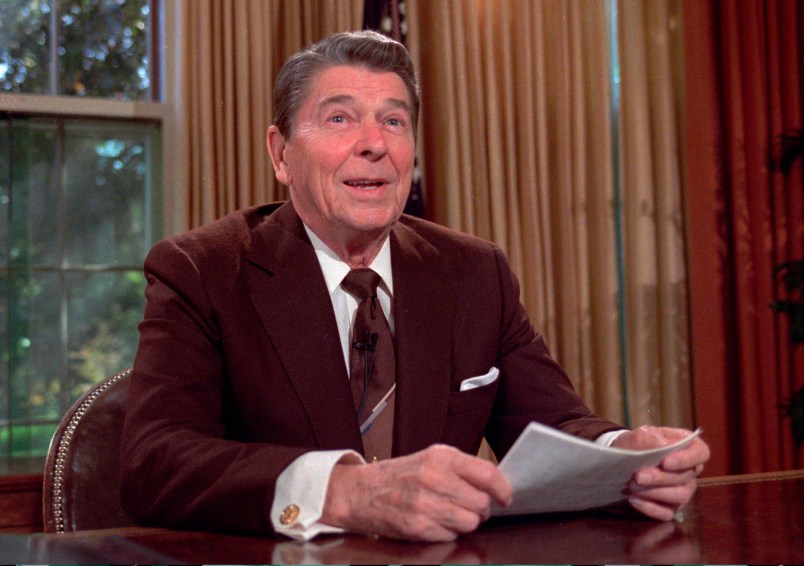After about a year of criticism from conservatives targeting the College Board’s “revisionist” course framework for the advanced placement U.S. history exam, the company on Thursday released new revisions to the course standards to address certain complaints.
The College Board described the new standards in a Thursday statement as “a clearer and more balanced approach to the teaching of American history.” After constant concern from critics over the AP U.S. History standards, the College Board said it took public feedback into account when drafting this latest revision. The College Board attempted to address those concerns by making statements in the standards “clearer and more historically precise, and less open to misinterpretation or perceptions of imbalance,” according to the statement.
In addition to attempting to address broad concerns about imbalance, the College Board also added a few terms that critics complained were lacking from the new framework, such as the names of some Founding Fathers. And the company eliminated some controversial words and softened the tone of the framework, according to Jon Butler, historian who consulted for College Board as they revised the framework in 2015.
For example, the 2014 framework, which was released in 2012, described former President Ronald Reagan as using “bellicose rhetoric.” And the new 2015 version eliminates the word “bellicose,” Butler told TPM on Thursday.
“That language has been eliminated. It never should have been in there in the first place, and it certainly shouldn’t have been in the framework as a statement of fact,” according to Butler.
Butler said the word “bellicose” as used to describe Reagan was one of the most common complaints, particularly from conservatives. The revised framework now says, “Reagan asserted U.S. opposition to communism through speeches, diplomatic efforts, limited military interventions, and a buildup of nuclear and conventional weapons.”
Aside from complaints about particular descriptions or key words, perhaps one of the biggest complaints about the 2014 framework, particularly from conservatives, was that the standards were too negative and lacked an emphasis on “American exceptionalism.”
The Republican National Committee, as well as school boards and legislators in numerous states, including Oklahoma, Georgia and Colorado, decried the 2014 framework as “radically revisionist” and “consistently negative.”
Newsweek reported that the new 2015 standards emphasize American exceptionalism with a new section on the topic.
The phrase “American exceptionalism” appears once in the new framework as part of a section on “American and National Identity.” But according to Butler, the revisions do not do much to address concerns about “American exceptionalism.”
“I don’t think there’s that much difference between [the two frameworks] on this particular question,” he said. “The framework has an emphasis on ‘American exceptionalism’ that it’s always had, and I would reject the criticism that it never did have it.”
As for the criticism that the standards taught an overly negative version of American history, Butler said that certain difficult issues simply need to be taught.
“We can’t go into a high school classroom or a college classroom and offer a history that only discusses the glories of American history,” he said. “Discussing them is not negative. Discussing them is enlightening. Discussing them is informative. Discussing them helps us understand why we might still have some problems today.”
Critics also complained that the 2014 framework left out key names, such as those of a few Founding Fathers. The College Board added the names of a few individuals, such as James Madison, to the 2015 standards. Butler told TPM that certain parts of the 2014 framework, such as the section on the American Revolution, were “more vague than was advisable.” The College Board also added Jane Addams and Martin Luther King Jr., as well as documents such as the Gettysburg Address and the Federalist Papers.
TPM reached out to Larry Krieger, one of the leading critics of the previous AP U.S. history standards, for a comment on the revisions, but has not yet received a response.







Of course Reagan used bellicose rhetoric. That’s exactly what conservatives thought was so great about him – that they think he carried a big stick and testosteroned the Soviets into submission and won the Cold War single-handedly. When did conservatives turn into such wusses?
As for “American Exceptionalism”, it should absolutely be in the framework, not implied but as an explicit topic: “Is it true that no other country in the entire world is as good at everything as us?”
American authoritarian conservatives, rewriting history since,…well, since forever. Welcome to The St. Ronald Reagan channel; ALL panegyric, ALL the time. Now here’s a catchy little blues tune from that new band, “The Hagiography Boys” called: “Ronnie Ain’t Never Done Nuthin’ Wrong”. Dig it.
Bullshit.
The whitewashing of history continues apace.
bellicose = bad. buildup of nuclear weapons = good. Got it. (/eyeroll)
Fatuous standards. Corruption uber alles!